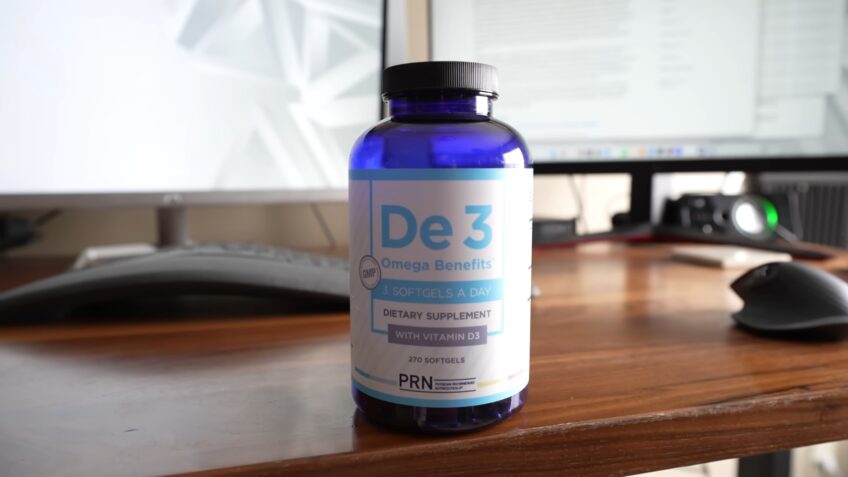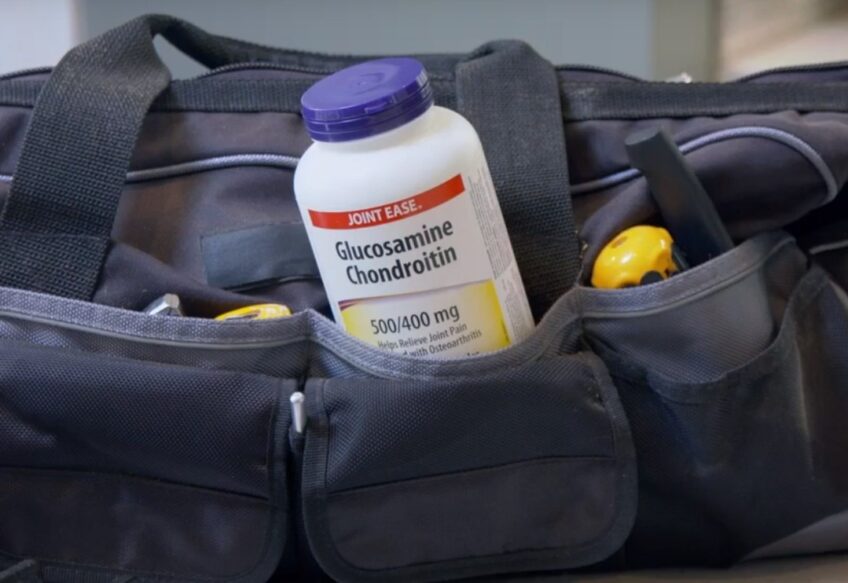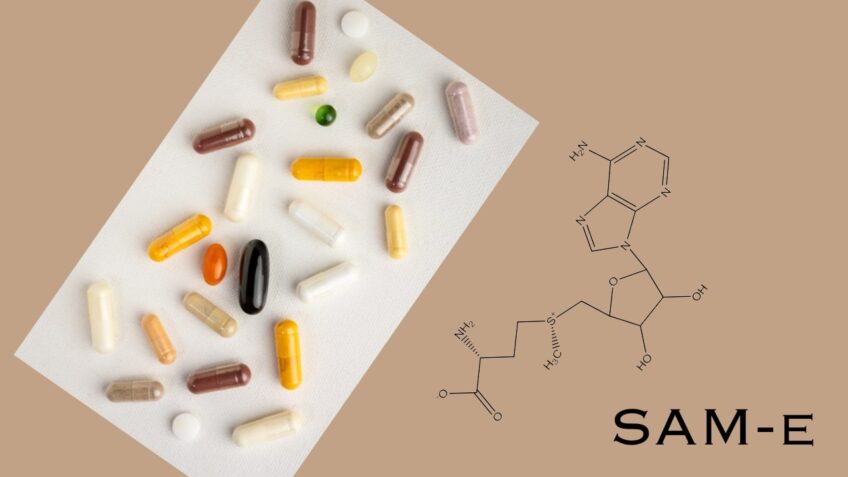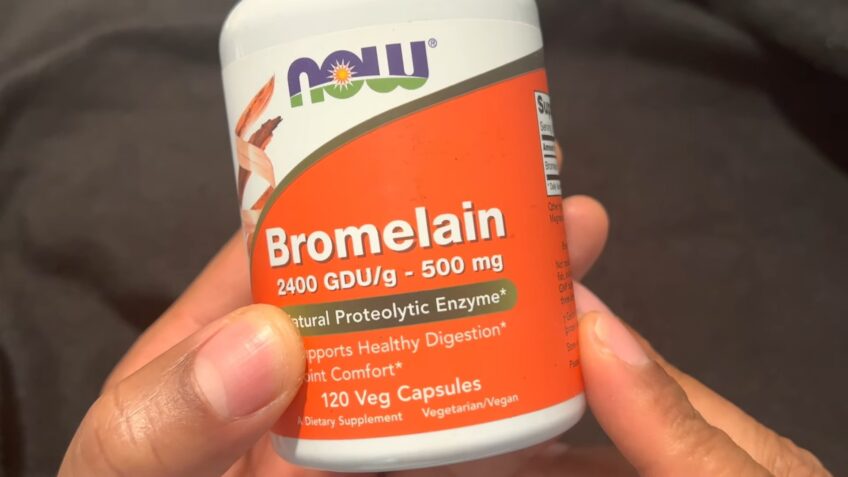Arthritis, particularly in the hands, can be a debilitating condition that affects daily activities and quality of life. While traditional treatments such as medication and physical therapy are commonly used, many people also turn to supplements to help manage their symptoms and improve joint health. In this article, we will explore some of the best supplements for hand arthritis and discuss their effectiveness in relieving pain and inflammation.
Along with hand exercises which can dramatically improve mobility and overall strength in arthritic hands, there are several supplements which have been shown to help with arthritis in the hands, although it is worth mentioning that far more research has been done on other joints such as the knee when it comes to using supplements to treat arthritis.
There are also plenty of studies that suggest that certain supplements may have potential benefits in reducing pain, inflammation, and improving joint function. It is always advisable to consult with a healthcare professional before starting any new supplements to ensure they are safe and suitable for your specific condition.
Page Contents
- 1 Understanding Hand Arthritis
- 2 Supplements for Hand Arthritis: Natural Relief and Support
- 2.1 1. Omega-3 Fatty Acids: Fighting Inflammation and Promoting Joint Health
- 2.2 2. Glucosamine and Chondroitin: Building Blocks for Healthy Joints And Hands
- 2.3 3. SAM-e: A Natural Compound with Multiple Benefits
- 2.4 4. Ginger: Possibly Better Than Pain Relief
- 2.5 5. Curcumin: The Powerful Anti-Inflammatory Compound in Turmeric
- 2.6 6. Bromelain: Breaking Down Inflammatory in Arthritic Fingers
- 2.7 7. Vitamins: Supporting Bone Health and Overall Well-being
- 2.8 8. Boswellia For Arthritis In The Hands
- 3 The Importance of a Healthy Gut Microbiome
- 4 Choosing the Right Supplements: Safety and Recommendations
- 5 Conclusion
Understanding Hand Arthritis
Before discussing the supplements, it’s essential to understand the nature of hand arthritis. There are different types of arthritis that can affect the hands, including osteoarthritis and rheumatoid arthritis.
Osteoarthritis is a degenerative condition that occurs when the protective cartilage in the joints wears down over time. Rheumatoid arthritis, on the other hand, is an autoimmune disease where the immune system mistakenly attacks the joints, causing inflammation and damage.
Common symptoms of hand arthritis include pain, swelling, stiffness, and enlarged bumps at the finger’s knuckles. These symptoms can be more pronounced in the morning or during activities. It’s important to note that arthritis is a chronic condition that requires ongoing management to alleviate symptoms and slow down joint damage. Approximately 58.5 million adults in the United States have arthritis, highlighting the need for effective treatment options.
Supplements for Hand Arthritis: Natural Relief and Support
Supplements can play a beneficial role in managing hand arthritis symptoms and promoting joint health. While they are not a substitute for medical treatment, they can complement existing therapies and provide additional support. Let’s explore some of the best supplements for hand arthritis and their potential benefits.
1. Omega-3 Fatty Acids: Fighting Inflammation and Promoting Joint Health

Omega-3 fatty acids, found in fish oil and other sources, have potent anti-inflammatory properties. These fats are particularly beneficial for rheumatoid arthritis, which is driven by inflammation. Studies from the journal of endocrinology have shown that omega-3 supplements can reduce joint pain, stiffness, and swelling in people with rheumatoid arthritis as well as osteoarthritis in all limbs.
A 2017 systematic review of studies found that omega-3 supplements were effective in reducing joint pain and inflammation in rheumatoid arthritis. They may also help some individuals decrease their use of pain relievers, such as ibuprofen. Omega-3 fatty acids have additional benefits, including protecting against heart disease and dementia.
While fish oil is a common source of omega-3s, plant-based sources like flax and chia seeds also seem like they contain a good amount, but this isn’t really the case as they contain a different type of Omega 3 called ALA, the human body wastes 85% of this. As such when choosing an omega supplement you should opt for fish oil if possible and look for one that lists the EPA and DHA content, and aim for a minimum of one gram of EPA and DHA. Vegans can opt for algae-based supplements to obtain their omega-3s as these are also rich in EPA and DHA.
2. Glucosamine and Chondroitin: Building Blocks for Healthy Joints And Hands

Glucosamine and chondroitin are two commonly used supplements for arthritis. They are natural components of cartilage, the tissue that cushions the joints. Research on these supplements has shown mixed results, but they may offer symptom relief, especially when used in conjunction with traditional treatments.
A large National Institutes of Health study called the GAIT trial compared glucosamine and chondroitin with a placebo and an NSAID in people with knee osteoarthritis. While glucosamine alone did not show significant improvement over the placebo, a 2016 international trial found that the combination of glucosamine and chondroitin was as effective as an NSAID in reducing pain, stiffness, and swelling.
It’s important to note that studies have differed on which form of these supplements is most effective. Some evidence suggests that glucosamine sulfate is better, while others find glucosamine hydrochloride to be more effective. Center TRT researchers recommend trying glucosamine sulfate, with or without chondroitin sulfate, for hand osteoarthritis.
3. SAM-e: A Natural Compound with Multiple Benefits

S-adenosyl-methionine (SAM-e) is a natural compound in the body that has anti-inflammatory, cartilage-protecting, and pain-relieving effects. Studies have shown that SAM-e is as effective as NSAIDs like ibuprofen and celecoxib in relieving osteoarthritis pain, without the side effects associated with these medications.
SAM-e also has an additional benefit for individuals with arthritis who also experience depression. It has a mild to moderate antidepressant effect, which can be helpful for those dealing with both arthritis and mood disorders.
The typical recommended dose of SAM-e is 1,200 mg daily, but it’s important to be patient as it may take a few weeks to see the full effects. As with any supplement, it’s best to consult with a healthcare professional before starting SAM-e to ensure it is safe and appropriate for your individual needs.
4. Ginger: Possibly Better Than Pain Relief

In a promising 2020 trial, ginger was pitted against naproxen, a commercial pain reliever, in reducing inflammation and pain in knee osteoarthritis. The study compared the efficacy of naproxen to a combination of ginger, black pepper, and curcumin (the active ingredient in turmeric). The herbal combination proved to be just as effective as naproxen, highlighting ginger’s potential as a natural alternative for osteoarthritis pain relief.
While research on ginger’s effects on rheumatoid arthritis is limited, some studies have provided valuable insights. A 12-week randomized controlled trial involving 70 participants with rheumatoid arthritis demonstrated that daily ginger supplementation led to a significant increase in the expression of FOXP3 genes, which help regulate the immune system. Additionally, pro-inflammatory genes decreased significantly in the ginger group.
Another study compared the effects of ginger supplementation to a placebo in 66 patients with active rheumatoid arthritis. The ginger group experienced a significant reduction in C-reactive protein (CRP), a marker of inflammation, as well as interleukin (IL)-1, an inflammatory protein targeted by arthritis drugs.
The catch with ginger for arthritis of the hands and fingers is usually the dosage in that you need 3 grams a day. It is still one of the best natural supplement for arthritis in hands, but this makes it an issue for combined supplements, unless you specifically extract the gingerol hydroxymethoxyphenyl. 30mg of this has been shown to be as effective as 3 grams of ginger and they have 70mg. It’s likely most other supplements for hand arthritis don’t do this simply due to the cost as it’s quite expensive to do this.
5. Curcumin: The Powerful Anti-Inflammatory Compound in Turmeric

Curcumin is the active compound found in turmeric, a spice commonly used in Indian cuisine. It has been extensively studied for its anti-inflammatory properties and its potential to reduce arthritis pain and inflammation.
A study of individuals with knee osteoarthritis found that a daily dose of 500 mg of curcumin extract was as effective as 1,200 mg of ibuprofen in relieving pain, without the gastrointestinal side effects associated with the medication. Curcumin has also shown promise in reducing swelling and tenderness in individuals with rheumatoid arthritis.
One challenge with curcumin is that it is poorly absorbed by the body. To enhance absorption, curcumin supplements should be taken with a source of fat. Some supplements also include black pepper extract, which can further increase absorption. However, caution should be exercised with black pepper extract, as it may interact with certain medications and potentially cause liver damage.
6. Bromelain: Breaking Down Inflammatory in Arthritic Fingers

A review published in the journal Arthritis Research in Therapy analyzed multiple studies on alternative remedies for arthritis, including bromelain. The findings indicated that bromelain was more effective than the pain reliever diclofenac in relieving osteoarthritis knee pain, as reported by patients in seven randomized trials. However, two trials found no significant difference between bromelain and a placebo.
Another review study, published in the journal Evidence-Based Complementary and Alternative Medicine, suggested that bromelain might offer a safer alternative or adjunctive treatment for osteoarthritis. However, further research is needed to better understand the effectiveness of bromelain for arthritis, particularly in inflammatory forms like rheumatoid arthritis.
7. Vitamins: Supporting Bone Health and Overall Well-being
Several vitamins have been studied for their effects on arthritis and joint health. While there is no evidence that antioxidant vitamins like A, C, and E directly improve arthritis symptoms, a diet rich in these nutrients is generally beneficial for overall health.
Vitamin D, in particular, plays a crucial role in bone health and may have a positive impact on arthritis symptoms. Research suggests that vitamin D deficiency may influence the development and progression of both osteoarthritis and autoimmune arthritis, such as psoriatic arthritis. It is important to maintain adequate vitamin D levels through sun exposure or dietary sources such as fatty fish, egg yolks, and fortified products.
Supplementing with vitamin D may be necessary, especially for individuals with low levels or limited sun exposure. The recommended dietary allowance for vitamin D is 600 international units (IU) per day, with higher doses recommended for older adults. However, it is crucial to consult with a healthcare professional to determine the appropriate dosage based on individual needs and blood test results.
It also helps with sleep as pointed out in discover magazine, and seeing as poor sleep can make arthritis symptoms worse, and arthritis can make sleeping more difficult (which seems like a never ending spiral), this can be something of an issue.
8. Boswellia For Arthritis In The Hands
Boswellia, also known as Indian frankincense, is an herbal extract with potential anti-inflammatory and pain-relieving properties. It may help manage symptoms of hand arthritis by reducing inflammation in the joints. A 2019 study on rats suggested that Boswellia extract could be useful in managing rheumatoid arthritis.
Additionally, a 2020 meta-analysis of seven studies found that Boswellia and its extract were effective in treating osteoarthritis.
The Importance of a Healthy Gut Microbiome
Emerging research suggests that maintaining a healthy gut microbiome may support inflammation prevention and improve arthritis symptoms. Consuming a well-balanced diet that includes a variety of vitamins, minerals, antioxidants, and anti-inflammatory foods can contribute to a healthy gut microbiome.
Foods rich in probiotics, such as yogurt, kefir, and kimchi, can help promote a healthy balance of gut bacteria. Additionally, following a Mediterranean diet, which emphasizes fruits, vegetables, fish, seeds, nuts, olive oil, and moderate amounts of dairy and poultry, has been associated with reduced arthritis pain due to its anti-inflammatory properties.
Choosing the Right Supplements: Safety and Recommendations

When considering supplements for arthritis, it’s important to approach them as complementary to traditional treatments, rather than replacements.
We generally recommend FlexAgain, it contains effective dosages of Omega, Glucosamine and chondroitin, Curcumin, Ginger, Boswellia, Bromelain, the vitamins we mentioned along with a couple of lesser well known extracts like resveratrol.
They do also offer a money back guarantee, which functionally means there’s no risk to trying the product, and based on their customer reviews they do seem to honor it, which again is something that not a lot of supplement manufacturers can claim unfortunately.
Conclusion
Supplements can play a role in managing arthritis symptoms and improving joint health. Glucosamine and chondroitin, omega-3 fatty acids, SAM-e, curcumin, and vitamins can provide potential benefits for individuals with hand arthritis.
However, it’s crucial to consult with a healthcare professional before starting any new supplement regimen and to use supplements as part of a comprehensive treatment plan that includes traditional therapies and lifestyle modifications.
By making informed choices and working closely with your healthcare team, you can find the right combination of supplements and treatments to help relieve pain and improve the quality of life with hand arthritis.
Astrona Knight is the Editor-in-Chief at Fischer Institute, where she shares her extensive knowledge on health and wellness topics. Her insightful articles cover everything from diet and nutrition to mental health, providing readers with practical tips and the latest research findings.
Also Read:
- Six Star Testosterone Booster: Pros and Cons of This…
- Dry Needling Piriformis: Find Relief for Sciatic Nerve Pain
- Can Hemorrhoids Cause Vulvar Pain? - Understanding…
- Does Peripheral Neuropathy Pain Get Worse in Cold Weather?
- Uncovering the Best Peanut Butter for Diabetics:…
- 9 Best Meal Replacement Supplements for Diabetics -…















